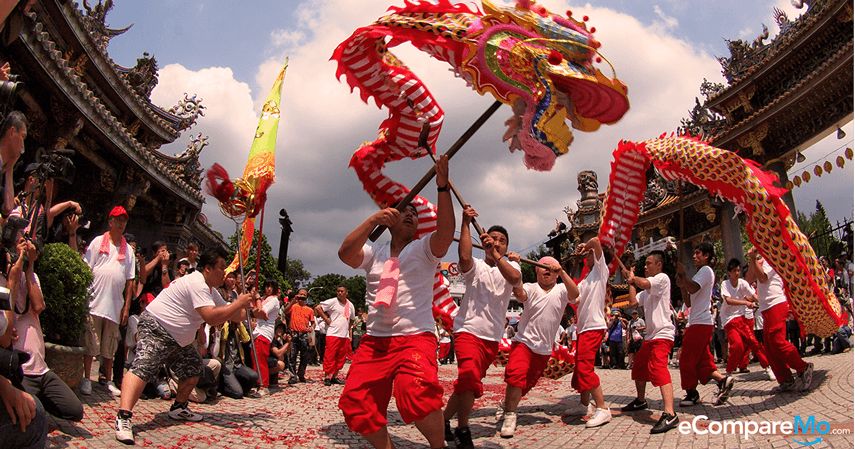9 Chinese New Year Superstitions And How You Can Put Them Into Action
3 min readFollow up these traditions with good deeds for a more prosperous and successful Year of the Monkey.

New Year traditions are rife with symbolisms that aim to attract everything positive—from good luck, prosperity, good health, and long life. While there’s absolutely nothing wrong with practicing these beliefs, following them up with concrete actions would increase your chances of attaining your goals for the coming year.
Here are nine popular Chinese New Year traditions—and the actions that one should take in the journey towards a favorable life this 2016.
1. Putting on red clothes and decorations
During Chinese New Year, people display red ornaments and put on red clothes. That’s because red is considered the luckiest color as it symbolizes good fortune and joy. Red also represents boldness, a reminder that we should take life with courage despite the most daunting challenges.
2. Lighting up fireworks
It is believed that firecrackers ward off evil spirits and misfortunes, and that the first to launch the fireworks during New Year’s Eve will be lucky in the coming year. It symbolizes letting go of the past and starting anew. Put this into action by igniting the “firework†within you: learn to stand up for what is right and speak up against people’s wrongdoings.
3. Eating tikoy
Nian gao, or tikoy, is traditionally eaten during New Year because it symbolizes unity and sweetness in the family. It is also a symbol of the higher and better year to come. Now, eating tikoy together New Year’s day is a great reminder to put one’s family first and strengthen personal relationships all year round.
4. Serving whole fish on the dining table
Fish symbolizes abundance and a good beginning; thus whole fish is served on the table every New Year’s Eve. Eating healthy should be a priority. Abundance starts from taking care of oneself, and adapting a positive mindset.
(See Related Topic:Â Superstition and Money: Ghost Month and Other Beliefs About Money)
5. Giving out “ang pao”
Inserting money in red envelopes and handing them out to family, friends, and Dragon/Lion Dancers is done for good luck. It is believed that the amount in the envelope should end with an even number. The truth is, generosity is never bad. It attracts more blessings, and it’s best to start the year by paying your good fortune forward.
6. Doing the dragon dance
Dragons are believed to bring power and auspiciousness. Dragon dances are said to ward off bad luck and bring long life and wisdom. This is commonly practiced in Chinese-owned business establishments and seen on the streets as a ceremonial activity. Dragons represent authority, power, and dignity—characteristics that a person aiming for a blessed and positive life should uphold.
7. Eating dumplings
Dumplings are also a staple every Chinese New Year because it resembles the shape of old Chinese money. Chinese people value their money and are known for being frugal. This is a character that most people need to practice, in a time where some people are struggling to live within their means and forget to save and invest their money.
8. Displaying 12 round fruits on the dining table
A New Year’s Eve tradition observed by Filipinos to attract good fortune. Specific fruits symbolize different things, but generally, they are believed to bring happiness and good health for each month of the year. But if you think about it, eating different fruits all year round is indeed beneficial to one’s health. Apple, for instance is packed with soluble fiber that aids in good digestion; lemon is known to reduce body fat and cholesterol; grapes are a good source of Vitamin A and folate; and almost all of them are loaded with Vitamin C that boosts your immune system.
9. Getting rid of clutter
The “out with the old, in with the new” symbolic tradition starts with cleaning the entire house a few days before the New Year. Preparing for the feast should mean that the house is ready to welcome guests. This is a reminder that with every new beginning, the baggage of the past should be left behind to get a hold of the better things to come. —Kristel Serran
